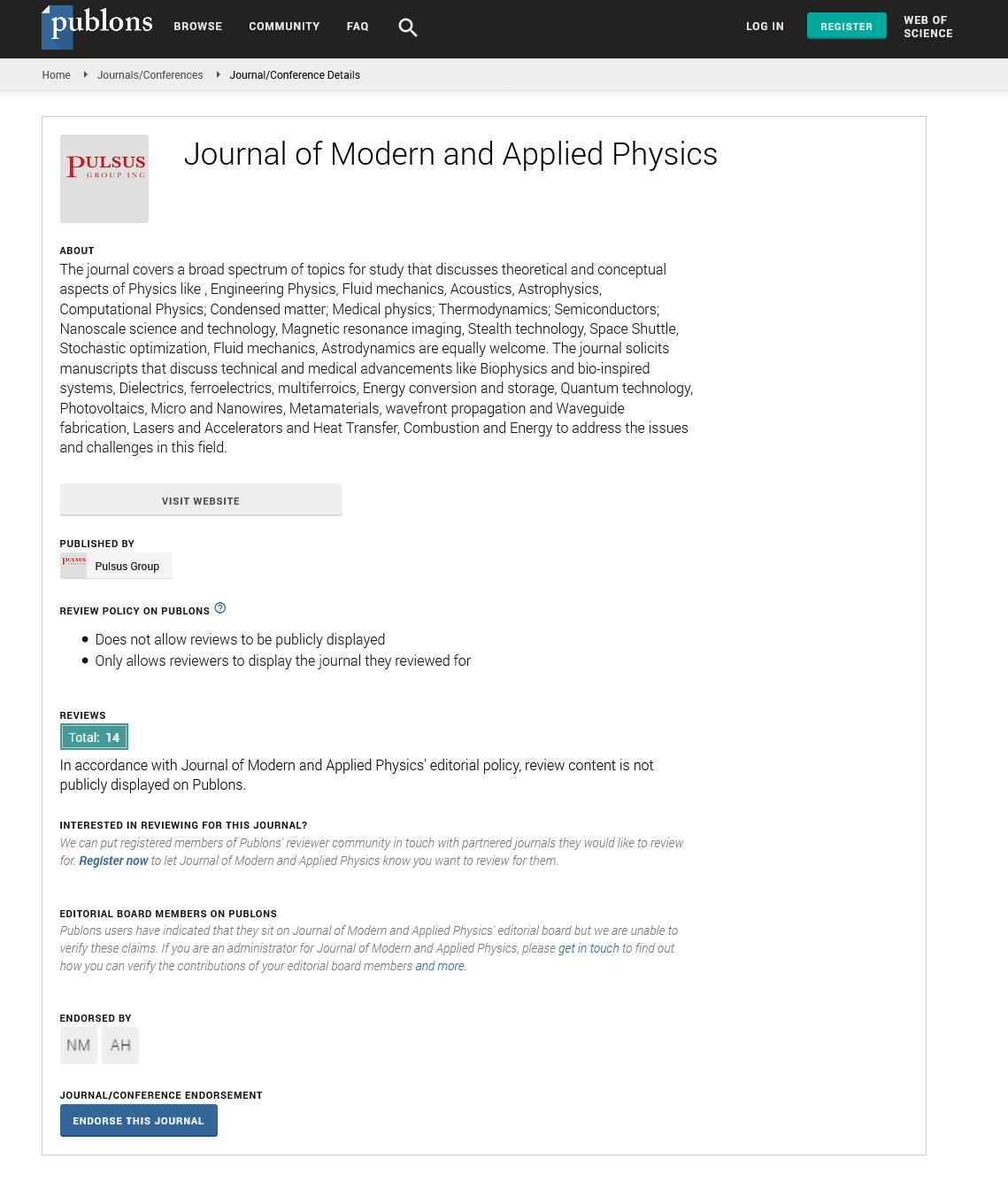
Sign up for email alert when new content gets added: Sign up
A Stackelberg Game Theory Based Demand Response Algorithm for Domestic Consumers
2nd International Conference on Applied Physics and Engineering(ICAPE)
March 15, 2023 | Paris, France
Akash Talwariya
L&T EduTech, India
ScientificTracks Abstracts: Jour of Mode & App Phy
Abstract :
Electric demand of the consumers is increasing day by day. Energy consumption profile is also random in nature. To mitigate these two problems an optimization is required. The demand of the consumers is managed by integration of renewable energy sources but these sources are depending upon weather constraints. Therefore, a proper forecasting is required to predict the generation and make the consumers available to consumer that electricity. At consumer end if electricity is provided at a certain time to low cost, there might be a chance of new peak consumption. To mitigate the problem an optimization is required. A lot of optimization methodologies such as fuzzy logic approach, artificial intelligence, game theory etc. are available for energy management at consumer end. In this presentation we will discuss the game theory method and in particular Stackelberg game for optimization of energy demand at consumer end. A Stackelberg game algorithm is proposed to optimize real time demand response equilibrium between consumers and utilities with the integration of renewable energy sources. Stackelberg game is played between one leader and N followers to provide interaction between utility and consumers in the presence of energy management center. The objective of consumers is to minimize their energy tariffs by scheduling their appliances. Appliances are categorized as non-shiftable, shiftable and curtailable appliances based on their applications as shown in Fig. The objective of the utility is to maximize its profit by managing peak to average energy consumption ratio, penetration of renewable energy sources as a primary source and during peak hours, integrate electric vehicles as a backup. The existence of a unique Stackelberg equilibrium that provides an optimal energy consumption scheme to each appliance at the consumer end was demonstrated. The simulation results showed the optimal real time demand response using Stackelberg game algorithm is effective for achieving the optimal load control. Recent Publications: 1. Agrawal, H., Talwariya, A., Gill, A., Singh, A., Alyami, H., Alosaimi, W., & Ortega-Mansilla, A. (2022). A Fuzzy- Genetic-Based Integration of Renewable Energy Sources and E-Vehicles. Energies, 15(9), 3300. 2.Talwariya, A., Singh, P., & Kolhe, M. L. (2021). Stackelberg Game Theory Based Energy Management Systems in the Presence of Renewable Energy Sources. IETE Journal of Research, 67(5), 611-619. 3.Talwariya, A., Singh, P., Kolhe, M. L., & Jobanputra, J. H. (2020). Fuzzy logic controller and game theory based distributed energy resources allocation.
Biography :
Akash Talwariya received his PhD degree from JK Lakshmipat University in Electrical Engineering on " Game theory based electrical power system optimization in the presence of distributed energy resources". Dr. Talwariya completed his postgraduate in Artificial Intelligence and Machine Learning from the National Institute of Technology, Warragal, India. He received his M.Tech and B.Tech in power systems and electrical engineering from Rajasthan Technical University, Kota, Rajasthan, India. He joined the department of Electrical Engineering at L&T EduTech,India as a Teaching Associate. His current research interests include smart grids, game theory, machine learning, demandside management, and future network architectures.




